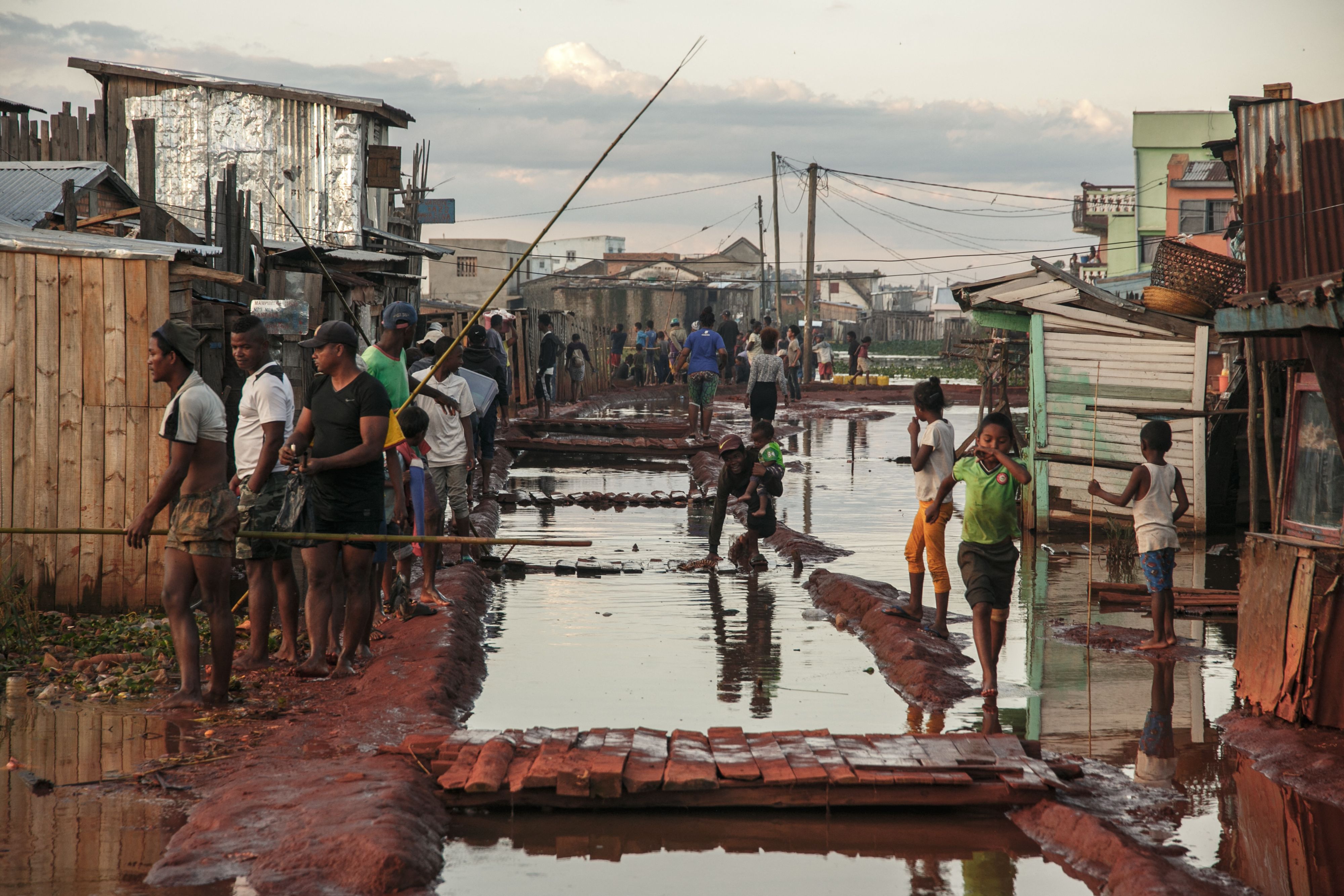Climate crisis fuelled Africa’s back-to-back deadly cyclones, study finds
Climate change made extreme rainfall heavier and more likely, scientists found

Recent extreme rainfall in southeast Africa earlier this year was more intense and damaging due to the climate crisis, scientists have found.
In a study published on Monday, scientists who are part of the World Weather Attribution group found that climate change made destructive showers more likely during back-to-back storms in Madagascar, Malawi and Mozambique at the beginning of this year.
Between January and March, southeast Africa was hit by three tropical cyclones and two tropical storms in just six weeks – with more than a million people affected by extreme rainfall and severe flooding, and some 230 recorded deaths, according to the group.
All three countries had experienced floods in the weeks preceding Tropical Storm Ana, leaving affected communities vulnerable to further rainfall, according to the report. Conflict in northern Mozambique and drought in southern Madagascar also likely increased vulnerability, it says.
Tropical Storm Ana and Cyclone Batsirai were forecasted and tracked, but the existence of warnings does not guarantee that they will be received and acted upon, the study’s authors said. In some areas, the damage to communication infrastructure and electrical grids hampered the reception of the warnings, they added.
“Again we are seeing how the people with the least responsibility for climate change are bearing the brunt of the impacts,” said Dr Friederike Otto, one of the leaders of the World Weather Attribution group, a collaboration between climate scientists and disaster experts that analyse the influence of climate change on extreme weather events. “Rich countries should honour their commitments and increase much-needed funding for adaptation, and for compensating the victims of extreme events driven by climate change with loss and damage payments.”
The combination of high vulnerability and climate change led to “devastating” losses and damages during the cyclone season in the region, she later tweeted.
In order to assess the role of climate change on the frequency and intensity of extreme rainfall during the storms, the scientists analysed weather observations and computer simulations to compare the climate as it is today – after about 1.2C of global warming since pre-industrial times – with that of the past.
The analysis focused on rainfall in Madagascar and an area over Malawi and Mozambique. In both cases, the scientists found that the rainfall was made more intense by climate change and that episodes of extreme rainfall such as these have become more frequent.
The finding is consistent with scientific understanding of how climate change affects heavy rainfall – as the atmosphere becomes warmer it gathers more water, increasing the risk of extreme rain. Scientists warn that as more greenhouse gases are emitted, and temperatures continue to rise, heavy rainfall will become even more common.
While the analysis shows that climate change made the storms more intense and damaging, the scientists said its precise contribution could not be quantified due to the absence of comprehensive historical records of rainfall in the region. The group has called for increased investment in weather stations in Africa that would allow for more precise analysis in the future.
Izidine Pinto, a climate scientist from Mozambique who is an author of the study, said in his country lost many weather stations during the years-long civil war that ended in 1992. While the government has since announced an ambition for weather stations to be built across the country, they were in need of funding, he added.
“In many governments there is no funding for research,” he told a press conference Monday. “Research is very important in this case, for example for attribution, and if we had enough station data, enough time series, enough data we would be confident enough to say this is how much climate change has contributed to this particular event.”
In this case, he added, scientists can only say that climate change played a significant role in increasing these heavy rainfall events in these three countries.
In 2009, developed countries pledged to provide $100bn annually to help developing nations adapt to global heating by 2020. The developed world has so far failed to live up to that promise. US climate envoy John Kerry said last month that he thought rich countries would meet the pledge this year.
Vulnerable and developing countries have also called on rich countries to compensate them for the “loss and damage” caused by the climate crisis – ie the impacts of global heating to which countries are unable to adapt. It became a hot topic at Cop26 in Glasgow but not much progress was made.
The World Weather Attribution study published Monday was conducted by 22 researchers, including scientists based in France, Madagascar, Mozambique, the Netherlands, New Zealand and the UK.
Subscribe to Independent Premium to bookmark this article
Want to bookmark your favourite articles and stories to read or reference later? Start your Independent Premium subscription today.

Join our commenting forum
Join thought-provoking conversations, follow other Independent readers and see their replies